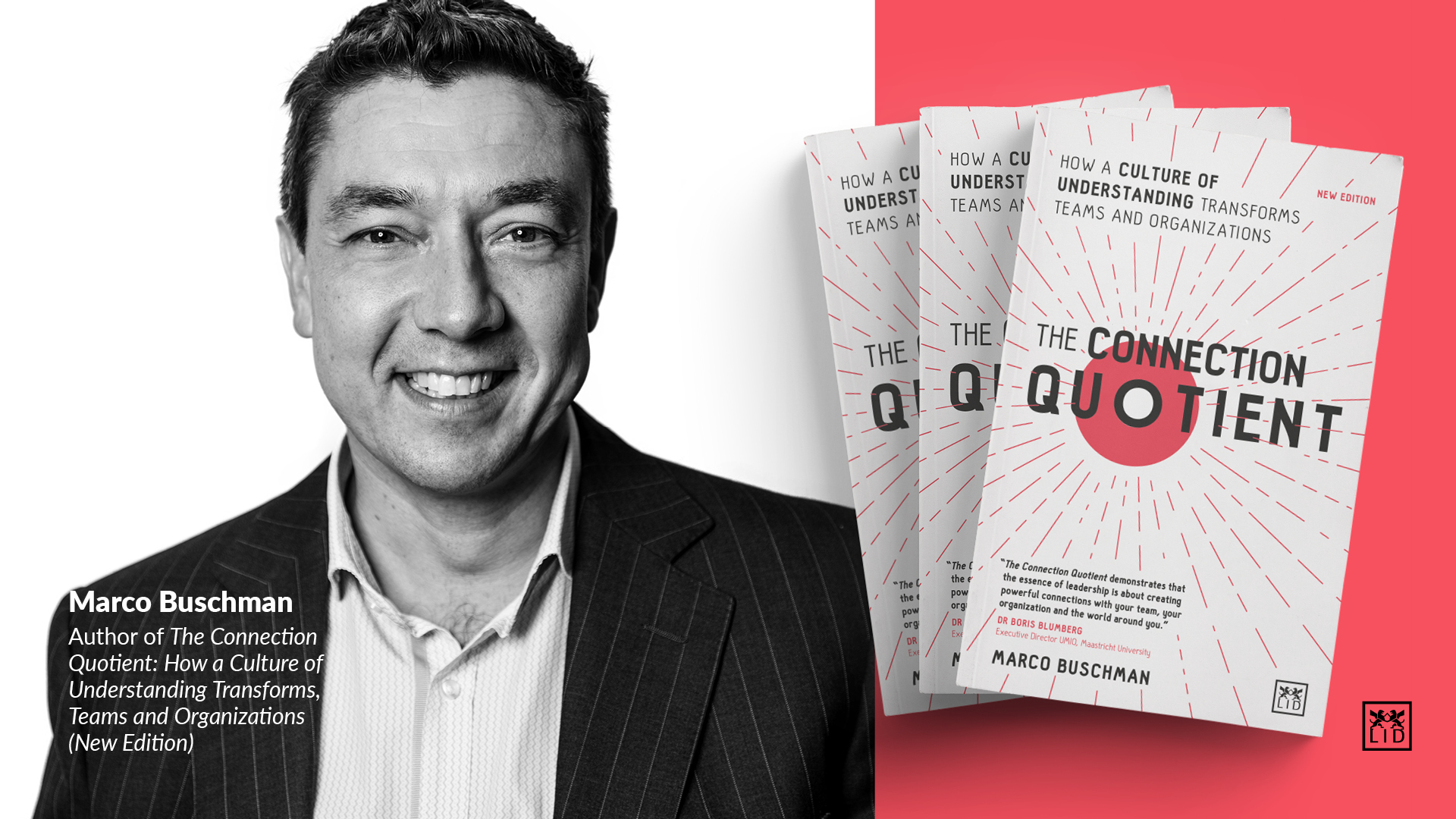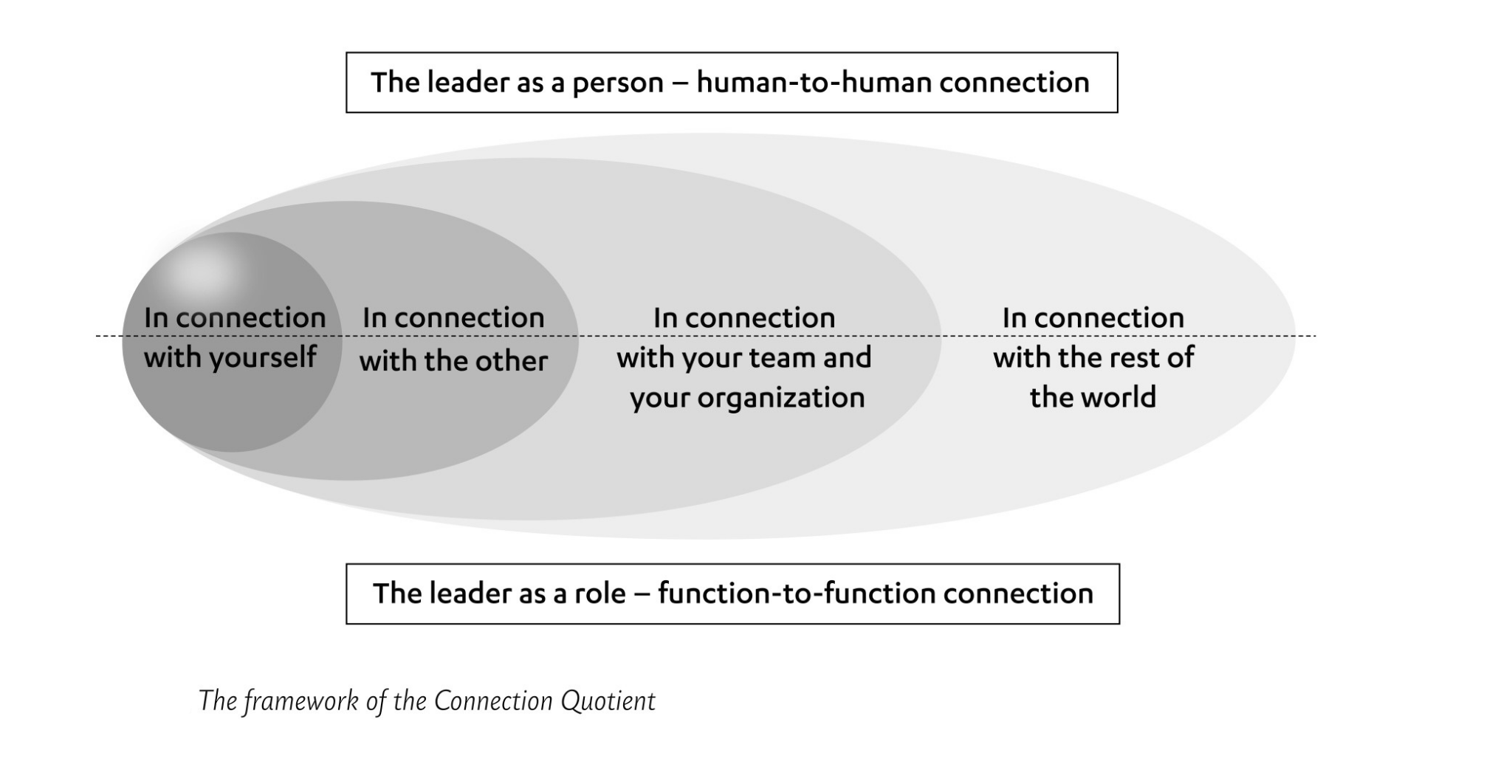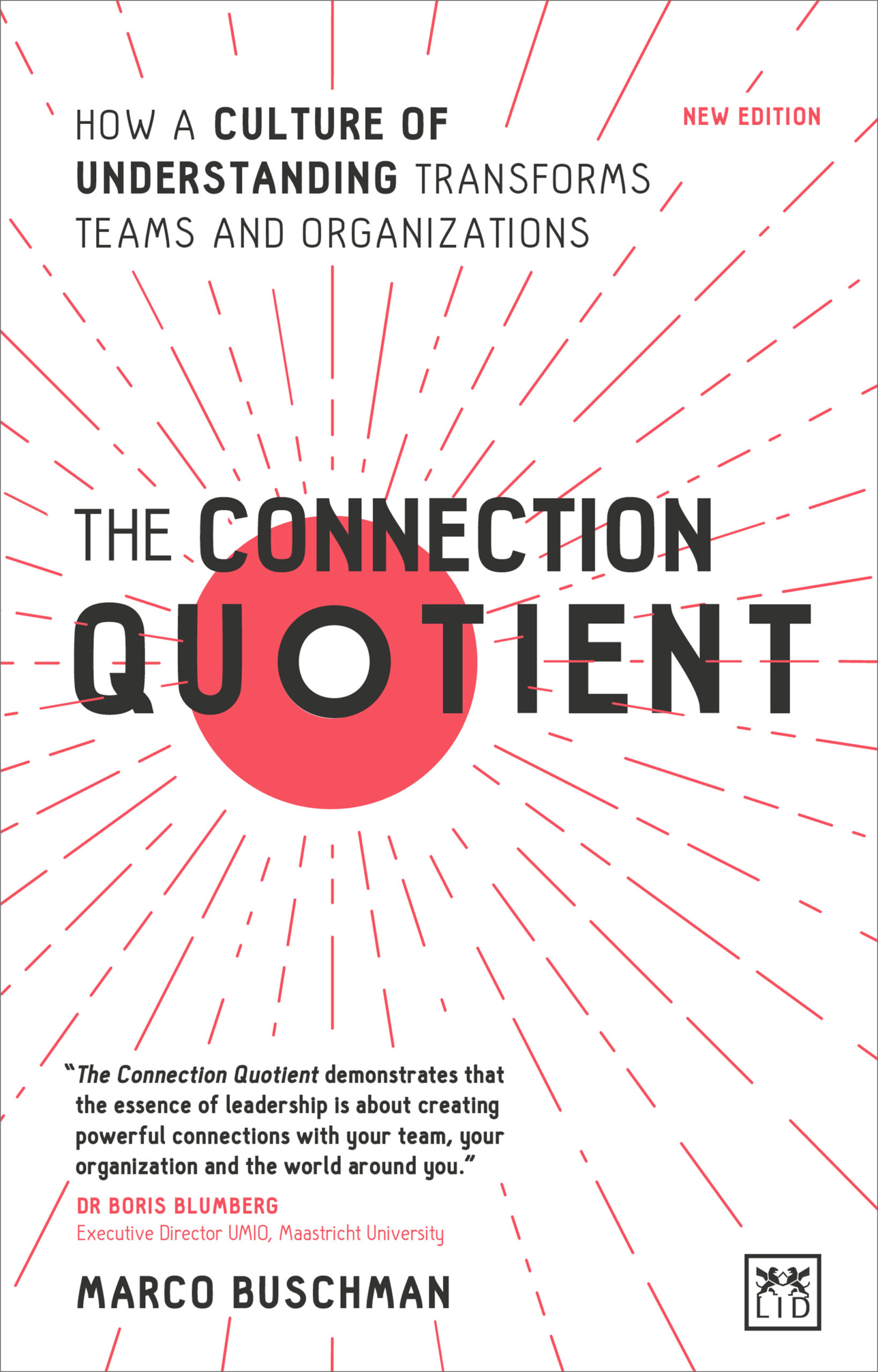|
What are the essential elements to be able to connect with yourself? with Marco Buschman
What are the essential elements to be able to connect with yourself?

By Guest Contributor Marco Buschman
Author of The Connection Quotient, Marco Buschman, reveals why every effective leader needs to be in connection with themselves and how to achieve it.
We are increasingly living and working in a service society. In such a society, you can no longer view the other as just another paying customer. Neither is it just about optimizing the factory and the production processes. More and more, it’s about people: about what you have to offer to the other, what the other has to offer you, how you can work smarter together and to what extent you’re prepared to grant each other favours.
In other words, employees, clients and suppliers are first and foremost people. In all your contacts with them, you are primarily a human being. The more you are your true self in these situations, and can continue to be, the greater the chance that a true connection will take place between you. And based on this connection, ‘business gets done’ and results are produced.
No matter how right a collaboration may seem on paper, if there’s no click and the connection doesn’t get established, the deal simply won’t go through. The same goes for your employees. You ask them to be sincere, to be transparent. You want them to voice their opinions and express themselves, even if the insights are at times painful or difficult. And so, you need to act as a role model in this context.
All leadership starts with self-leadership, which is why connection with yourself forms the pearl in the framework of the Connection Quotient (Figure 1). All trust starts with self-trust. All exploration starts with self-exploration. All observations start with self-observations. All respect starts with self-respect and all doing starts with doing it yourself. My invitation to you is to explore your whole self (the leader as a role/human doing and as a person/human being) and to take your whole self with you to your work. Don’t leave your human being at home.

But connecting with yourself requires some work and here are the essentials elements.
Not only rational
Engaging in a connection with yourself is never purely a rational process, but we live in a world that is largely governed by cognition and logic. You need to stop asking yourself whether you are competent or not. Of course, the content side of your work has to be in place and the foundation has to be solid, but the knowledge level of the majority of people/leaders is generally adequate. They keep up to date with knowledge about their field and the managing/leading of people, as well as having an extensive network.
Your development as a leader, however, is more than just taking courses to maintain your specialist knowledge and management techniques.
Your true development as a leader does not rely on content, but rather needs to be internally driven – it is the development of your character. It’s only when your internal parts are interconnected that you can become complete. This means having the courage to act in alignment with your values and beliefs. So now it’s about activating all the different layers you house within yourself: head, heart and hands. This wholeness allows you to work on deepening a connection with yourself. It’s about asking yourself bigger, or deeper, questions, such as: What are my fears? What do I find difficult? What are my needs? What are my personal values? What do I want to contribute to? What is the bigger task I have to do in life?
The art is then to make these questions even more concrete: How am I dealing with time, with relationships, with energy, with my work and my private life, with my own emotions and the emotions of others? And how do I want to deal with these matters?
The place of emotions
Many leaders find emotions complex to grasp, even scary or taxing. The search for the connection with yourself is sometimes dismissed as silly, but that doesn’t have to be the case.
Experiencing emotions and being yourself are part of your birthright. Emotions and our instinct: that’s what we come into this world with. After that, under the influence of upbringing, school, training and work, we develop the side of rationality more than that of emotion. We learn to analyse. We are seduced into stepping into a normative straitjacket of good and bad. Or we are rewarded to stay watching at a distance. That’s when emotions suddenly become awkward and complex, or we feel clumsy or even at a loss.
But when you were born, you were already a complete person, with the most basic emotions of sadness, fear, anger and joy. Embrace these emotions.
An important lesson here is that of normalization. At work, just as at home, arguments or grief occur. This occurs partly in the form of rediscovery when you engage with the connection with yourself. The drive of each individual to be in contact and in connection, in whatever way, is immense. It appeals to a primeval instinct. We are a social species.
Sincerity
The Connection Quotient (CQ) is, among other things, about sincerity. The person who applies his CQ but without being sincere will achieve results only for the short term. The person who looks within himself and does not fully engage with what he encounters there is deceiving himself. Trust in your own ego and believe in yourself. But be sure to accept both the sunny and dark sides in yourself. In the spirit of the celebrated psychoanalyst Carl Jung, I would say, “Life is not about becoming perfect or enlightened, but becoming your whole self.”
You can’t fake sincerity. The person who simulates sincerity is not in connection with himself. Everyone can feel that. Anyone who has worked with the Connection Quotient and with the source of sincerity for a period of time also sees whether or not someone else has been moved emotionally.
We see ourselves often purely as human doings, but we are above all human beings. It’s important to realize that each one of us possesses both sides, and that it’s important to be able to integrate them both.
Especially when you find yourself caught up in the heat of your emotions, reflect how you wish to respond in each situation based on your own values. What are your values? How much integrity and sincerity do you have? And can you be honest with yourself?
Courage
It’s often necessary to link courage with being sincere. To what extent do you have the courage to look in the mirror and see your true self? If you can succeed in being 90% okay with all your good sides as well as all your dark sides, you’re doing well. Whatever you encounter then will produce many wonderful moments, but it can also be painful. On some occasions, you will have to grit your teeth or overcome something.
If you see a mountain standing in your way, and you can’t go around it, you probably also realize you can’t jump over it in one go. You will have to conquer that mountain step by step, day after day. Do you have the courage and the motivation to see your patterns, your difficulties and also, ultimately, all the sources behind your successes and beautiful moments? This way you may suddenly discover that the mountain you thought you couldn’t jump over is already largely behind you.
ABOUT THE AUTHOR

Suggested Reading
 The Connection Quotient enables an honest, courageous and humane interconnection to form, while still focusing on financial outcomes and results, developing these relations to improve the business networks they serve. The CQ enables us to illuminate our human qualities and use these to connect with others, discuss differences, expand insight and encourage the development of new ideas. The CQ will introduce a new workplace culture where organizations and teams can approach the personal and professional through a more transparent and inclusive style. Ultimately, the CQ makes it possible to play “hard on the ball, and soft on the individual”.
The Connection Quotient enables an honest, courageous and humane interconnection to form, while still focusing on financial outcomes and results, developing these relations to improve the business networks they serve. The CQ enables us to illuminate our human qualities and use these to connect with others, discuss differences, expand insight and encourage the development of new ideas. The CQ will introduce a new workplace culture where organizations and teams can approach the personal and professional through a more transparent and inclusive style. Ultimately, the CQ makes it possible to play “hard on the ball, and soft on the individual”.
